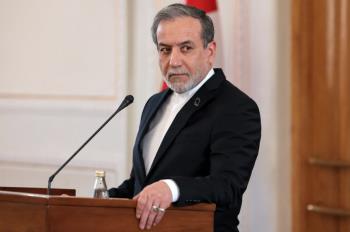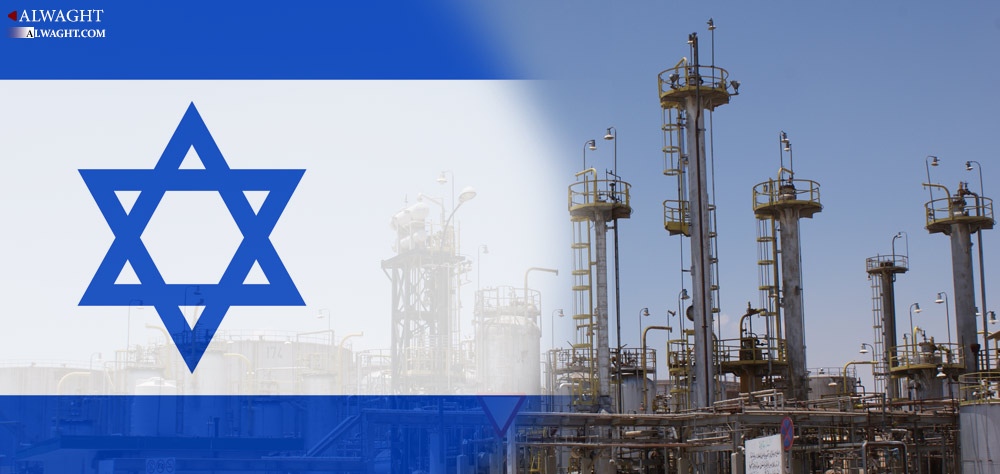Alwaght- The security-based nature of the Israeli regime pushes its officials to use any chance to provide security. Meanwhile, energy is the very latest instrument that Tel Aviv takes advantage of to realize a couple of its goals including normalizing diplomatic ties with the neighbors, gaining regional legitimacy and acceptance, and altering the geopolitical power across West Asia region.
The unnatural and illegitimate nature of the Israeli regime in each and every stage of its life like its foundation, state-building, and nation-building have made obsession with security provision and gaining legitimacy to be central to Tel Aviv’s foreign policy, in a way that it is difficult to draw a clear line between its security policies and its economic, cultural, political, and trading cooperation with East Asian and North European countries. To put it another way, proposed policies that have no security consideration are driven out of the Tel Aviv officials' agenda.
Here is a short focus on Tel Aviv energy-related facts:
Israeli regime’s energy strategy and policy
Energy diplomacy is an attempt to cross the technological, production, marketing, and foreign investment hurdles. By pursuing the vital energy diplomacy and energy cooperation, Tel Aviv seeks relaxing its security concerns and buying legitimacy among the regional countries.
Being the largest oil consumer and second-largest gas consumer in eastern Mediterranean region, the Israeli regime is still imports its energy from abroad. Tel Aviv now buys over 95 percent of its oil.
Its efforts for discovering oil have all failed, or only small oil reserves were discovered. The last discovered oil reserve dates back to May 2016, dubbed Hatrorim Oil Field, located in Negev Desert between Dimona city and the Dead Sea. The total reserve of this oil field is evaluated to be between 7 and 11 million barrels, which is less than oil amount exported by Iran in three days.
Contrary to the Israeli failures in oil explorations, its efforts during the past 15 years yielded considerable results in gas sector. Before discovering gas reserves, the Israeli regime was supplied with gas by Egypt through Al-Arish-Ashkelon gas pipeline. However, after the 2011 Arab uprisings and start of the period of “Islamic Awakening” that overthrew the Egyptian and Tunisian dictators, the Israeli leaders grew concerns about their energy security as the pipelines carrying gas to the Israeli regime from Egypt were attacked several times. After 2011, the Israelis accelerated a movement that had started from the 1990s and aimed at making the regime self-efficient in energy production.
Israeli gas reserves
Tel Aviv discovered a gas field in 2000, and dubbed it Mary B. Until its reserve end in 2013, the gas field provided the Israeli regime with 40 percent of its total gas.
There is also Tamar gas field in the Mediterranean waters and close to Haifa port city. It was discovered in 2009 and started production in 2013. It now provides the Israeli regime’s industries with fuel, as at the same time accounts for production of half of electricity power.
But the largest gas reserves are in leviathan field. It is 30 kilometers off the Haifa coasts, and will play a key role in Tel Aviv’s gas self-efficiency. There are other smaller gas fields operating beside this major one.
Tel Aviv plans gas exports to regional countries
Israeli regime started gas exports since 2013. In June 2013 the Israeli government agreed to export 40 percent of its gas reserves. Some time later Tel Aviv signed a deal to provide West Bank with gas.
The same contract was signed with Jordan. Under the deal, Israeli government was committed to supplying Jordan with 66 billion cubic meters of gas for 15 years. In late January 2016, the Israeli regime signed a $1.3 billion deal to provide Turkey with 6 billion cubic meters of gas for 18 years.
What are the goals and results of Israeli gas policy?
A large part of Tel Aviv’s policies in West Asia and North Africa are focusing on buying security for this regime. The most important drive to expand energy cooperation is to push the regime out of tight isolation and normalize relations with the regional countries.
By signing gas deals with Turkey and Eastern Europe countries, the Israeli leaders on the one hand want to scale down dependence to the West and on the other hand present Tel Aviv as a rival to Tehran in gas exports to Europe.



























